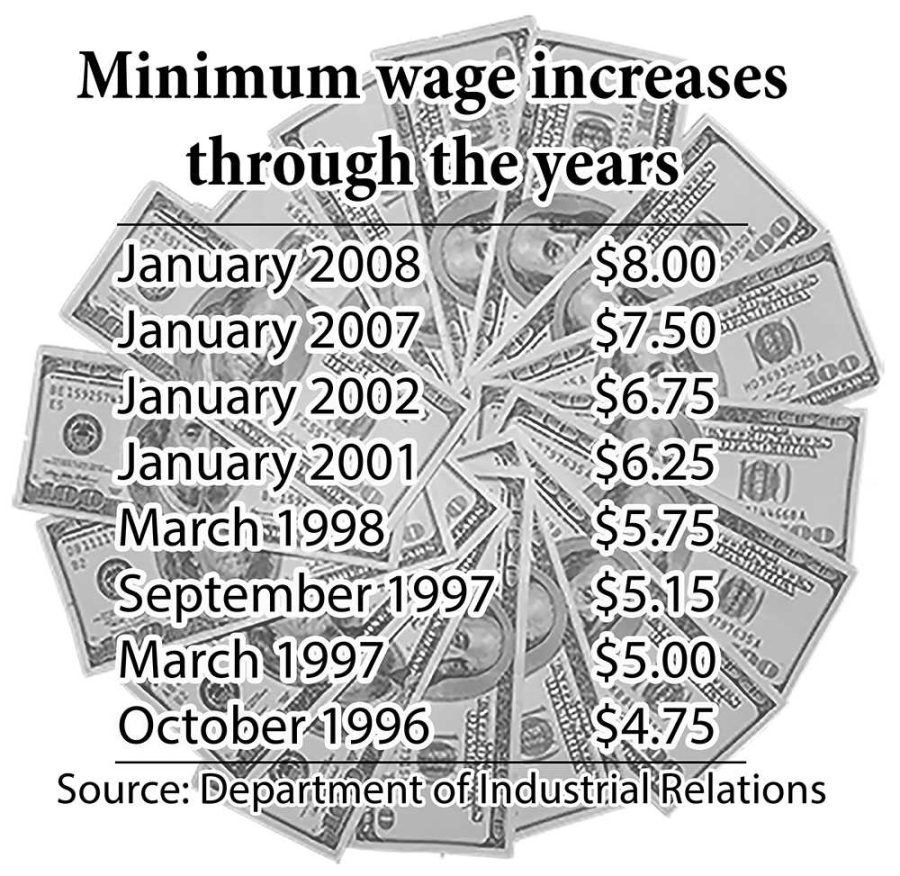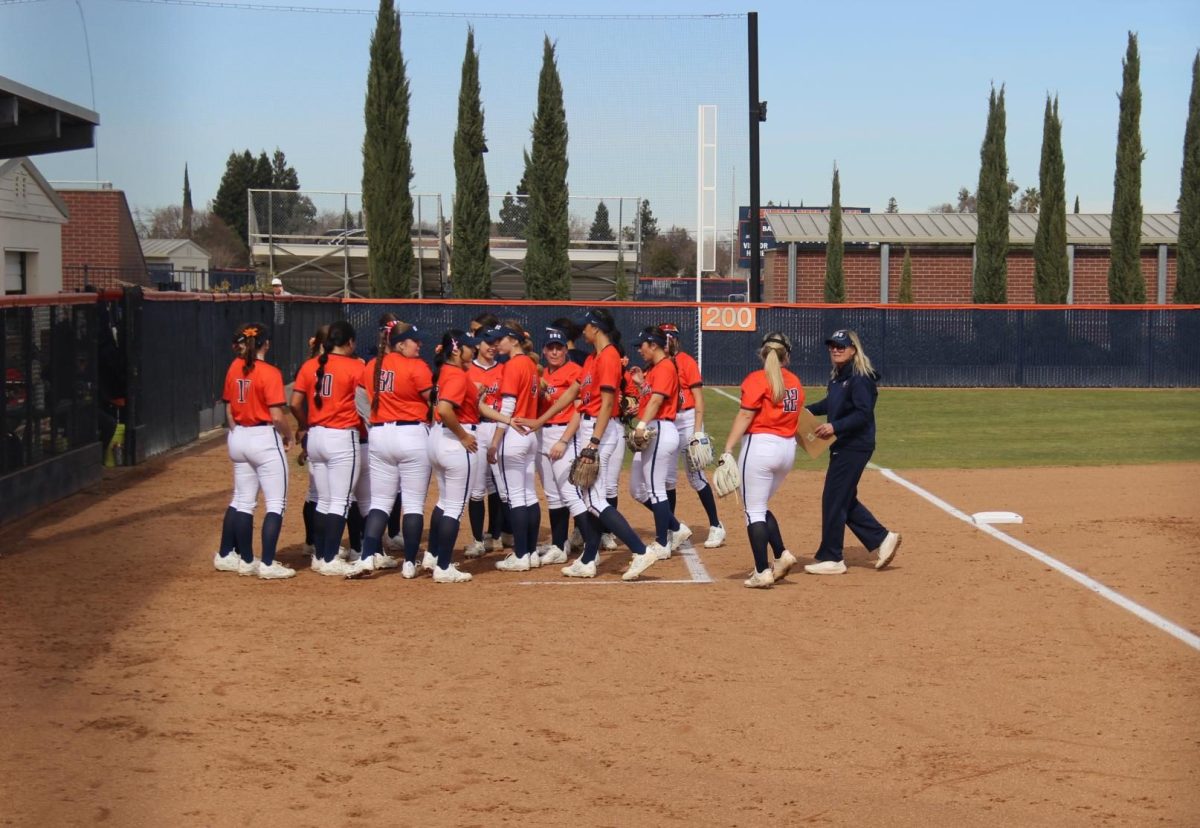California minimum wage on the rise in 2014
October 6, 2013
Democratic efforts to raise the minimum wage in California for the first time in five years, succeeded on Sept. 25, when Gov. Jerry Brown signed Assembly Bill 10 into law.
The bill will increase the state minimum wage to no less than $9 per hour after July 1, 2014 followed by another increase on Jan. 1, 2016 to no less than $10 per hour.
“I believe the reason for such an action is a realization that a worker earning the current minimum wage in California will earn an annual income of $16,000,” said economics professor Edwin Fagin. “Sixteen thousand is not a lot of money to live on.”
The federal minimum wage originated during the Great Depression in the Fair Labor Standards Act of 1938. Minimum wage laws all have the same intended goal: reduce poverty, according to the FLSA.
“People want people in the U.S. to have a better life,” Fagin said.
The bill’s author, Assemblyman Luis Alejo (D-Los Angeles) introduced similar bills in 2011 and 2012 that both died because of opposition by Republican members and business lobbyists according to press release from Alejo’s office.
The bill’s sponsor, the California Labor Federation reported the bill will strengthen and depoliticize California’s minimum wage.
California’s minimum wage is among the highest in the country, although it hasn’t been raised since 2008, according to the Huffington Post.
“It’s kind of ridiculous,” said 18-year-old Angelic Acosta, a nursing major. “If the minimum wage raises, everything will raise.”
According to a new study, coauthored by economic professors at the University of California, Berkeley, the University of Massachusetts and the University of North Carolina, raising the minimum wage does not eliminate low-paying jobs in either the short or long term.
The majority of individuals holding minimum wage jobs are teenagers, young adults, women or those under the age of 25, according to the Federal Bureau of Labor Statistics. This demographic accounts for over half of the minimum wage workers.
“I think it’s wonderful,” said 22-year-old Artika Vilash, a psychology major. “The thing about consumerism is if we have more money to spend then business will go up.”






